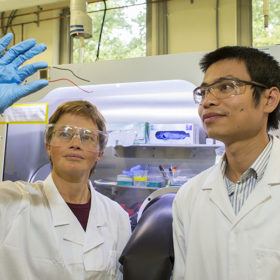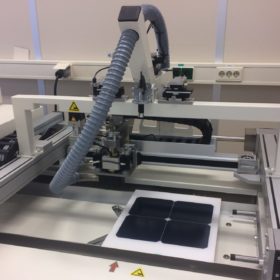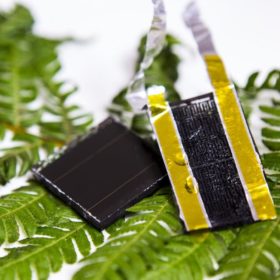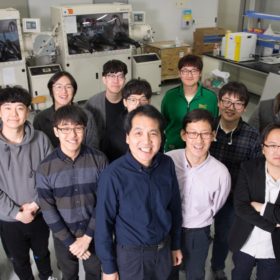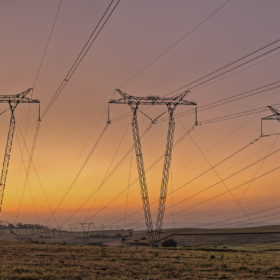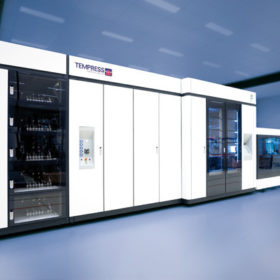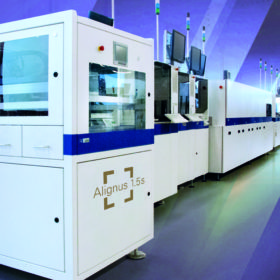ANU develops 26% efficient cell using perovskites
Researchers at the Australian National University (ANU) have achieved 26.4% efficiency using a stacked configuration of silicon and perovskite solar cells. The perovskite cell is semi-transparent and, according to ANU, could bring down the cost of generating solar power.
Fraunhofer ISE to investigate PV panels for commercial vehicles
German solar research institute Fraunhofer ISE is investigating the development of integrated PV panels for commercial vehicles. After conducting analyses using real life solar irradiance data, Fraunhofer sees great potential in this field.
Tempress & ECN develop process for IBC cell production
Equipment manufacturer Tempress has teamed up with Dutch research center ECN to develop a production process for n-type IBC solar cells with efficiency above 21%. A pilot of the new process was completed in just three months, illustrating its compatibility with mass production.
Solutions unveiled for next generation storage
Two innovative new technologies with potential applications in solar were unveiled this week. Research teams across the world are looking at new way to boost solar’s stability by integrating with storage. Scientists in Australia and in China demonstrate their innovative steps toward achieving this.
Korean University team develops 21.2% efficient perovskite solar cell
Researchers at the Ulsan Institute of Science and Technology (UNIST) in South Korea have announced the development of a method to produce perovskite solar cells, which the University says could contribute to commercialization of the technology.
IHS Markit: Storage and better grid efficiency could save hundreds of billions each year
A new white paper published by analysts at IHS Markit compares the electricity network with other key systems such as transport and data infrastructure. The report concludes that increasing the amount of electricity storage available could create a more flexible, efficient and reliable grid, and save billions of dollars each year.
Europe’s largest bifacial installation under construction in the Netherlands
PV equipment supplier Tempress has announced the beginning of construction on a 400 kW installation close to its headquarters in the Netherlands, which will be the largest in Europe to feature glass-glass bifacial modules.
Tongwei subsidiary announces joint venture with Longi
Sichuan Yonxiang Co. Ltd, a subsidiary of Chinese industrial giants Tongwei, has announced the creation of a joint venture with Longi Green Energy Technology. The joint venture plans to build a new polysilicon production plant in Sichuan Province, China, with an annual capacity of 50,000 metric tonnes.
Asys introduces new metallization line
German equipment supplier Asys today announced the launch of its new dual lane metallization line for crystalline silicon cell production, Alignus 1.5s. The line features a high level of automation, as part of the company’s Industry 4.0 approach, and aims to decrease cell metallization process times.
Swansea University team develop new method to improve CZTS efficiency
A research team from the SPECIFIC Innovation and Knowledge Centre at Swansea University has developed a method that could lead to efficiency improvements in CZTS solar cells.

